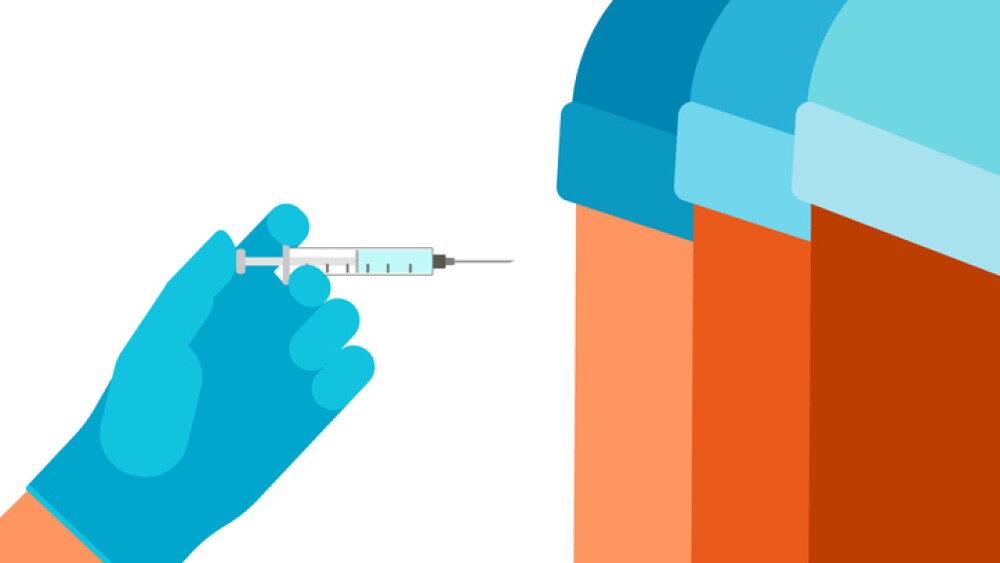Dermavant Sciences, a clinical-stage biopharmaceutical company dedicated to developing and commercializing innovative therapeutics in immuno-dermatology, will present data from its two pivotal Phase 3 trials for tapinarof for the treatment of psoriasis in adults, PSOARING 1 (tapinarof 1%, n=340; vehicle, n=170) and PSOARING 2 (tapinarof 1%, n=343; vehicle, n=172), at the American Academy of Dermatology Virtual Meeting Experience
The posters feature important secondary efficacy endpoints and patient-reported outcomes data from patients with mild, moderate, or severe chronic plaque psoriasis after 12 weeks of treatment with tapinarof cream 1% dosed once daily (QD) compared to vehicle QD.
Endpoints reported include ≥90% reduction in Psoriasis Area and Severity Index (PASI90) (an endpoint more commonly used in assessing systemic agents), itch reduction measured with the Peak Pruritis Numerical Rating Scale (PP-NRS), and improvement in quality of life as measured by the Dermatology Life Quality Index (DLQI). All secondary endpoints were met with highly statistically significant results, and patients treated with tapinarof showed significant improvement in all measures of disease activity included in the studies.
Highlights from Secondary Efficacy Endpoints and Patient-Reported Outcomes:
- PASI90 – At Week 12, a significantly higher proportion of patients treated with tapinarof cream 1%, QD achieved PASI90 in PSOARING 1 (18.8%) and PSOARING 2 (20.9%) compared to patients treated with vehicle in PSOARING 1 (1.6%; P=0.0005) and PSOARING 2 (2.5%; P<0.0001).
- ≥4-point Improvement in PP-NRS – Peak Pruritis-NRS - A statistically significant higher proportion of patients treated with tapinarof cream 1%, QD achieved at least a 4-point NRS improvement - a change that is considered clinically meaningful - at each time point from Week 2 through Week 12. At Week 12 in PSOARING 1 and PSOARING 2 that proportion was 67.5% and 59.7% respectively, compared to patients treated with vehicle (46.1% in PSOARING 1; P=0.0004, and 31.3% in PSOARING 2; P<0.0001).
- DLQI – At Week 4, patients treated with tapinarof cream, 1% QD reported significant improvements in quality of life as measured by the DLQI. A minimal clinically important difference of –4.0 in DLQI was exceeded at Week 12 for patients treated with tapinarof (–5.0 in PSOARING 1; –4.7 in PSOARING 2). These reductions were significant (both P<0.0001) compared to vehicle (–3.0 in PSOARING 1; –1.6 in PSOARING 2).
“It is encouraging to see Phase 3 secondary endpoints data like this from a topical,” said Linda Stein Gold, MD, Director of Dermatology Clinical Research at Henry Ford Health System. “Seeing the PASI90 scores for approximately one in five patients in the PSOARING pivotal trials makes me extremely excited for what tapinarof may mean as a treatment option for patients with psoriasis, if approved.”
“Psoriasis is a chronic disease that can significantly interfere with all aspects of a patient’s daily life,” said Robert Bissonnette, MD, FRCPC, Chief Executive Officer and Medical Director at Innovaderm Research. “Tapinarof has demonstrated significant promise regarding some of the most problematic symptoms of this skin disease, including significantly reducing itch by at least four points on a 0 to 10 scale.”
“The outcomes of our pivotal Phase 3 PSOARING trials add to the body of evidence for tapinarof and will be important for patients and the physicians who treat them,” said Philip M. Brown, MD, JD, Chief Medical Officer, Dermavant. “The consistent, statistically significant, and clinically meaningful improvements in patient-reported outcomes we have seen throughout these trials, support the potential use of tapinarof, if approved, as a topical non-steroidal for psoriasis patients.”
The most commonly reported adverse events were folliculitis, nasopharyngitis, and contact dermatitis.
Dermavant is developing tapinarof as a novel, once-daily therapeutic aryl hydrocarbon receptor modulating agent (TAMA), cosmetically elegant, steroid-free topical cream for the treatment of plaque psoriasis and atopic dermatitis.
About Dermavant’s Phase 3 Program for Tapinarof in Psoriasis
Dermavant’s pivotal Phase 3 clinical program for tapinarof in adult plaque psoriasis consists of PSOARING 1 (NCT03956355) and PSOARING 2 (NCT03983980), as well as PSOARING 3 (NCT04053387), the ongoing long-term safety study.
PSOARING 1 and PSOARING 2, which collectively enrolled 1,025 patients, were two identically designed, multi-center, randomized, vehicle-controlled, double-blind, parallel group studies conducted in North America that evaluated the safety and efficacy of tapinarof cream, 1% dosed once daily (QD) for 12 weeks versus vehicle QD in adult patients aged 18-75 years diagnosed with plaque psoriasis. The primary endpoint of both studies was a PGA score of clear (0) or almost clear (1) with a minimum 2-grade improvement from baseline at Week 12.
PSOARING 3 is a long-term, open-label, extension study to evaluate the safety and efficacy of tapinarof cream, 1% for the treatment of plaque psoriasis in adults. Subjects in the study had previously completed treatment with tapinarof or vehicle in either the PSOARING 1 or PSOARING 2 Phase 3 pivotal efficacy and safety studies. PSOARING 3 consists of up to 40 weeks of tapinarof cream, 1%, and a 4-week safety follow-up period. As such, subjects who received drug during PSOARING 1 and PSOARING 2 completed PSOARING 3, having received treatment with tapinarof cream for up to 52 weeks. Greater than 90% of eligible patients who completed PSOARING 1 and PSOARING 2 enrolled in PSOARING 3. Dermavant recently released interim analysis results from PSOARING 3.
About Psoriasis
Psoriasis is a chronic, systemic, inflammatory skin disease characterized by red patches and plaques with silvery scales on the skin. Psoriasis affects approximately 8 million people in the United States and 125 million worldwide.
Psoriasis can begin at any age, but typically has two peaks of onset, the first at age 20 to 30 years and the second at age 50 to 60 years. People with psoriasis are at an increased risk of developing other chronic and serious health conditions. Comorbidities include psoriatic arthritis, inflammatory bowel disease, hypertension, diabetes, obesity, and depression. Psoriasis has a significant impact on quality of life and on psychological health.
About Dermavant
Dermavant Sciences, a subsidiary of Roivant Sciences, is a clinical-stage biopharmaceutical company dedicated to developing and commercializing innovative therapeutics in immuno-dermatology. Dermavant’s focus is to develop therapies that have the potential to address high unmet medical needs while driving greater efficiency in research and clinical development. The company’s robust medical dermatology pipeline includes both late-stage and earlier-stage-development product candidates the company believes could address important immuno-dermatological conditions, including psoriasis, atopic dermatitis, vitiligo, primary focal hyperhidrosis, and acne. Dermavant is developing its lead product candidate, tapinarof (DMVT-505), as a novel therapeutic aryl hydrocarbon receptor modulating agent (TAMA) topical cream for the treatment of plaque psoriasis and atopic dermatitis, which affect approximately 8 million and 26 million people in the United States, respectively. The company reported positive Phase 3 results for tapinarof cream in adult patients with plaque psoriasis. For more information, please visit www.dermavant.com, and follow us on Twitter (@dermavant) and LinkedIn (Dermavant Sciences).
View source version on businesswire.com: https://www.businesswire.com/news/home/20210423005088/en/
Contacts
Gilmartin:
Laurence Watts
Managing Director
laurence@gilmartinir.com
619-916-7620
dna Communications:
Angela Salerno-Robin
Senior Vice President, Media Relations, Healthcare
ASalerno-Robin@dna-comms.com
212-445-8219
Source: Dermavant Sciences





